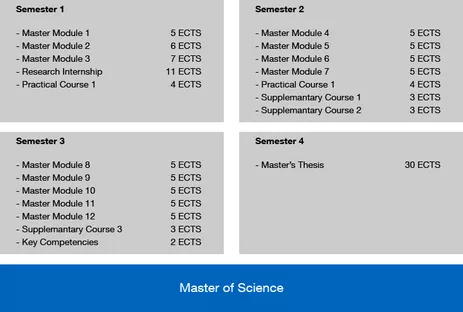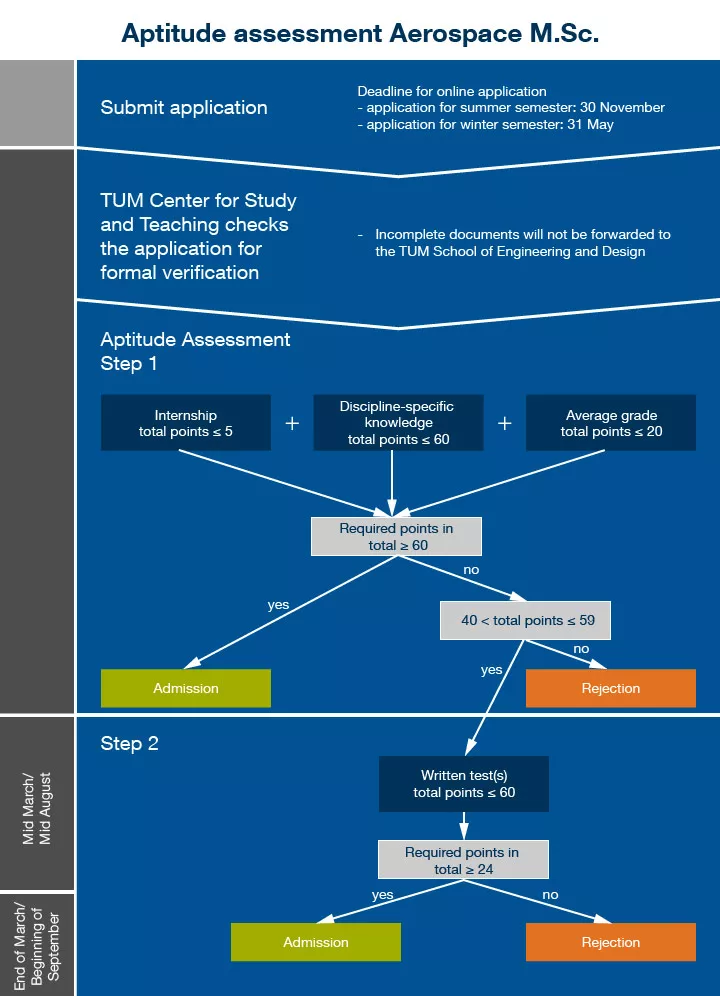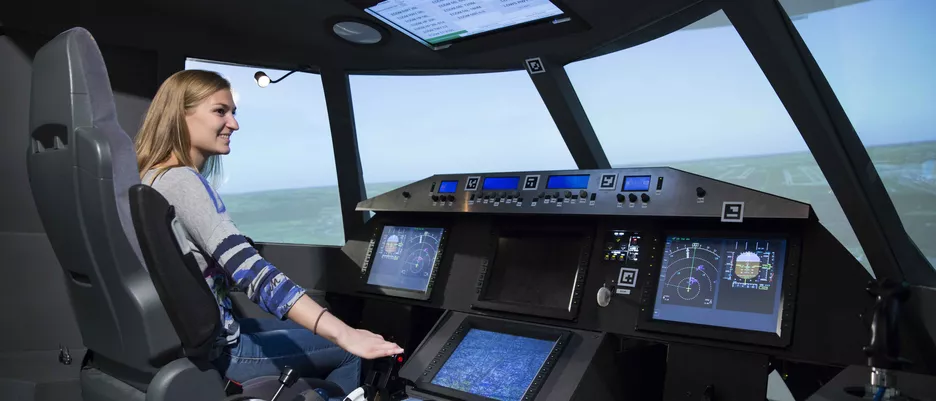Aerospace M. Sc.
Is your goal to design aircraft that fly faster, higher, and farther while conserving resources and being economical? Do you want to test the limits of what is technically feasible in space travel or advance information technology with novel satellite systems?
In our hybrid Aerospace degree program you will learn everything you need to know to make your fascination and passion into your profession as an aerospace engineer.
What you'll learn for your future?
The Master's degree in aerospace will enable graduates to develop a strongly process-led, verifiable, international and interdisciplinary way of working which is particularly essential in aerospace. Graduates will gain competence in the field of flying total systems which they can apply, depending on their individually chosen direction, to the fields of transport systems, endo- and exo-atmospheric flight systems, as well as to the disciplines of aerodynamics, lightweight construction, flight system dynamics, flight power units, control technology, aircraft design or aerospace technology. In addition, graduates will have significant knowledge of production methods, as well as material science from development to application.
Further, graduates will be constantly confronted with problem areas which require optimization with regard to economic and ecological considerations, as well as specific restraints concerning design, construction, licensing and operating flight systems.
More information on the M.Sc. Aerospace can be found on our TUM Aerospace Wiki.
Type of Study: Full Time
Standard Duration of Studies: 4 Semester
Credits: 120 ECTS
Main Locations: Garching
Admission Category: Aptitude Assessment
Start of Degree Program: Summer and Winter Semester
Application Period: Winter semester: 01.04. – 31.05. and Summer semester: 01.09. – 30.11.
Required Language Proficiency: English or German
Tuition Fees: for Students from Non-EU Countries
New scientific and technical developments, such as in automation and propulsion systems, are enabling entirely new aircraft concepts, including unmanned aerial systems and electrically powered aircraft. These developments are being driven by highly educated engineers in companies and universities, who are breaking new ground based on a comprehensive understanding of the entire aerospace system in interdisciplinary and international cooperation. Students majoring in aerospace engineering are particularly concerned with the design and development of spacecraft, satellites, and related subsystems and components.
The master's program offers great flexibility to create an individual study plan. The program is structured as follows:
- master modules, divided into main subject areas integrated system, propulsion systems, fluid dynamics/aerodynamics, structure, dynamics and control technology, as well as domain-specific modules and flexibilization in engineering science
- lab courses
- supplementary courses
- research practise (term project, team project, practical research course)
- key competences (language courses, soft skills workshops, …)
- Master’s thesis
The program is taught in German and English. Depending on your choice of specialization, you can complete the program entirely in German or English, or take modules in both languages. The module handbook in TUMonline tells you which modules are taught in which language.

There is the possibility of a stay abroad at one of 15 European partner universities in eight countries. In addition, a large number of non-European partner universities are available. Finally, students of the M.Sc. Aerospace can apply for the double-degree program with ISAE-SUPAERO in Toulouse.
More information about the different possibilities of a stay abroad can be found on the website of the TUM Global & Alumni Office.
Please apply through the TUMonline application portal and upload your application documents.
The selection is made by means of an aptitude assessment procedure. This is a two-stage process in which suitability for the special qualitative requirements of the master’s degree program is assessed.
You can find further information about the evaluation as well as the required documents in our wiki-page on the application procedure.

